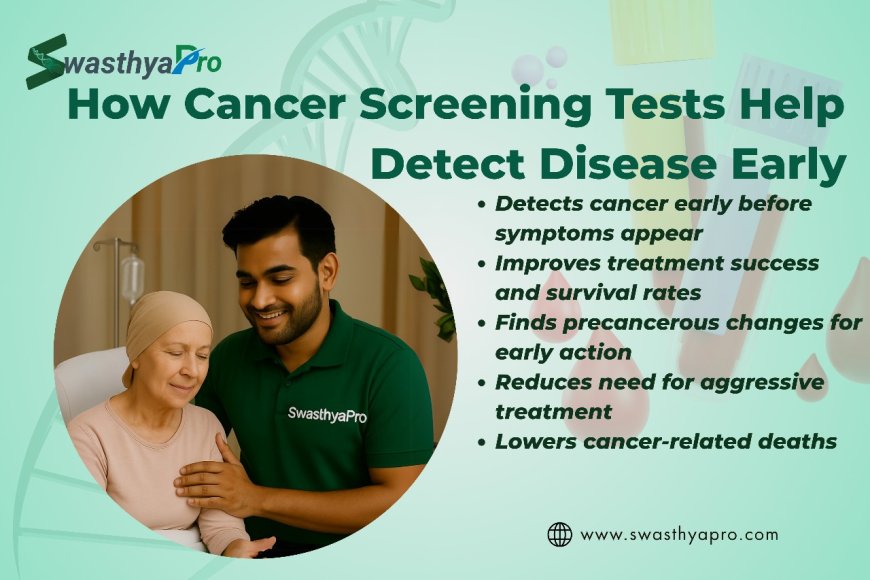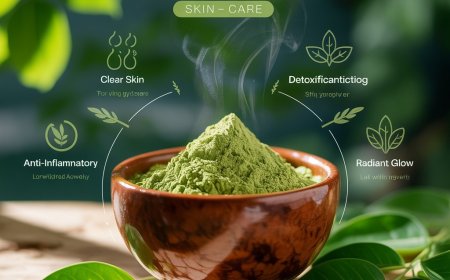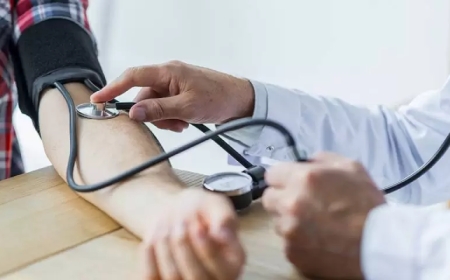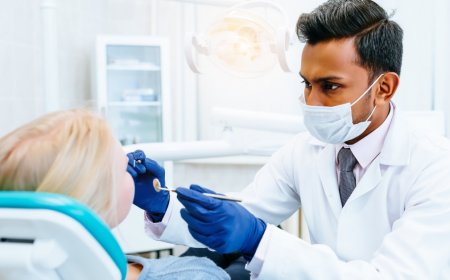Who Needs a Cancer Screening Test? Risk Factors You Shouldn’t Ignore

Cancer doesnt strike at random. While it can affect anyone, certain people are at higher risk due to specific lifestyle habits, medical history, or genetic predisposition. A cancer screening test is the best line of defense especially if you're in a risk group. Early detection through a simple screening can turn a silent killer into a treatable condition.
If youve ever wondered whether you really need a cancer screening test, this article will give you a clear, no-nonsense answer based on proven risk factors.
What Is a Cancer Screening Test?
A cancer screening test is a preventive medical exam or lab test that detects signs of cancer before symptoms appear. It helps catch abnormal cells, tumors, or biological changes in the body at a stage when treatment is most effective.
Regular cancer screening tests are not just for the elderly or sick. They're essential for anyone with identifiable risk factors many of which are more common than people realize.
Top Risk Factors That Mean You NEED a Cancer Screening Test
1. Family History of Cancer
If your parents, siblings, or close relatives have had cancer, your chances of developing certain types of cancer increase significantly. This includes:
-
Breast cancer
-
Ovarian cancer
-
Colon cancer
-
Prostate cancer
In such cases, you should start your cancer screening test routine earlier than general guidelines suggest. Genetic testing may also be recommended.
2. Smoking and Tobacco Use
Cigarette smokers and tobacco chewers are at a dramatically higher risk of developing:
-
Lung cancer
-
Oral cancer
-
Throat and esophageal cancers
-
Pancreatic cancer
If you currently smoke or have a smoking history of 20+ pack years, annual cancer screening tests like low-dose CT scans and oral screenings are strongly advised.
3. Excessive Alcohol Consumption
Chronic alcohol intake increases your risk for:
-
Liver cancer
-
Mouth and throat cancer
-
Breast cancer (especially in women)
People who drink regularly should consult their doctors about annual liver function tests and other appropriate cancer screening tests.
4. Obesity and Poor Diet
Being overweight is linked to an increased risk of:
-
Endometrial cancer
-
Colon cancer
-
Breast cancer (post-menopause)
-
Kidney cancer
A sedentary lifestyle combined with poor diet often leads to chronic inflammation and hormonal imbalances, which promote cancer development. A regular cancer screening test can help monitor changes in your body early.
5. HPV or Hepatitis Infections
Sexually transmitted infections like HPV are known to cause cervical, anal, and even throat cancers. Similarly, Hepatitis B or C infections are linked to liver cancer.
If you've tested positive for either, a doctor-monitored cancer screening test schedule is essential.
6. Age Over 40
Even if you have no other risk factors, age alone increases your cancer risk due to the natural wear and tear on cells. Most health experts recommend that people aged 40+ begin regular cancer screening tests, including:
-
Mammograms
-
Pap smears
-
Colonoscopy
-
Prostate exams
-
Oral and skin checks
The older you get, the more proactive you need to be.
7. Occupational Hazards & Pollution Exposure
People exposed to carcinogens at work or in their environment (like asbestos, radiation, chemicals, or air pollution) are more likely to develop lung, bladder, or skin cancers.
If your job or location exposes you to such hazards, discuss targeted cancer screening tests with your healthcare provider.
8. Chronic Health Conditions
Conditions like diabetes, ulcerative colitis, Crohns disease, and immunosuppression (e.g. after organ transplant) raise your cancer risk. These conditions create long-term inflammation or weaken your immune system, making cancer screening tests all the more necessary.
Dont Ignore Subtle Warning Signs
Even if you dont have strong risk factors, pay attention to early symptoms that may indicate the need for a cancer screening test, such as:
-
Unexplained weight loss
-
Fatigue or weakness
-
Lumps or swelling
-
Persistent cough or bleeding
-
Changes in bowel or bladder habits
These symptoms dont always mean cancer, but they do mean you should act fast.
Where to Get a Cancer Screening Test
Today, getting a cancer screening test is easier than ever. Platforms like Swasthyapro offer affordable, at-home screening services from blood tests to full body checkups along with expert reports and teleconsultations.
Whether you live in a metro city or a smaller town, your health doesnt have to take a backseat anymore.
Final Words: Prevention > Cure
If you relate to even one of the risk factors above, you owe it to yourself and your loved ones to schedule a cancer screening test. Early detection saves lives and removes the fear of the unknown.
Remember:
Ignoring a risk doesnt make it go away.
Facing it with awareness, action, and regular cancer screening tests puts you back in control.



































